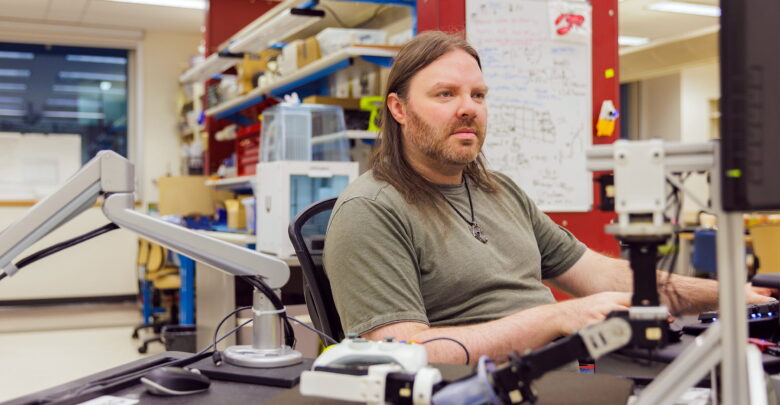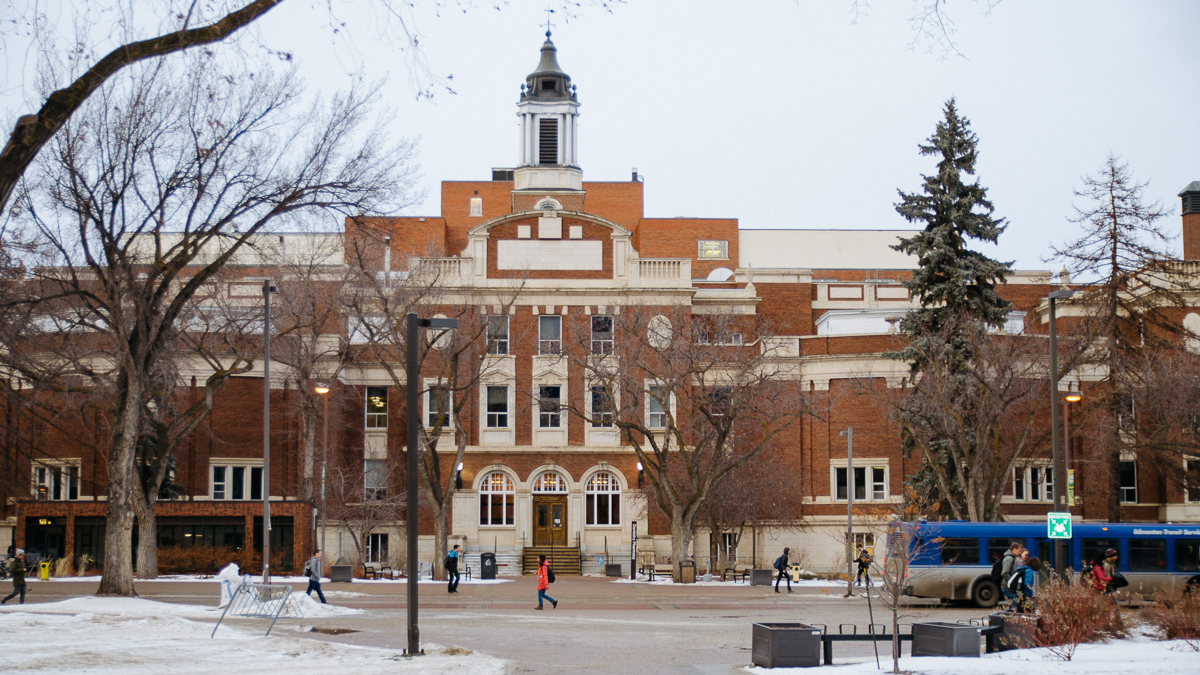 Supplied
SuppliedA recent University of Alberta graduate is using the capabilities of artificial intelligence (AI) to improve prosthetic devices. Adam Parker recently graduated with a PhD in Rehabilitation Science during the fall 2024 convocation ceremony. Parker’s research in the U of A’s Bionic Limbs for Improved Natural Control (BLINC) Lab focused on using AI to enable prosthetic devices to learn over time through experience.
In rehabilitation medicine, reinforcement learning enables prostheses to receive feedback from the environment and improve with time. According to Parker, it is important that prosthetic devices “learn continually from the person’s experience.”
In an experiment Parker ran, able-bodied volunteers used a simulated physical arm prothesis to move flexible cups back and forth on the table. The goal was to avoid crushing the cups. There were two prosthesis groups — a direct-feedback group and a predictive-feedback group.
The direct-feedback prosthesis knew the cups’ breaking thresholds beforehand and warned users near the threshold. The predictive-feedback prosthesis learned the breaking thresholds during the experiment and got better at warning users over time.
After the experiment, Parker interviewed each participant to hear “what they had to say” about the experiment.
“People talked about the direct feedback as being unstable, unpredictable,” Parker said.
For the predictive-feedback prosthesis, “they didn’t talk about it being unstable, they talked about it getting better,” Parker said.
Parker thinks the ability of prostheses to adapt to users’ needs over time might encourage continued usage. “If [patients] can see it adapting . . . that encourages them to keep using it.”
“The only person who’s an expert on their disability is the person with the disability,” Parker says
Parker takes a patient-centric approach to his work, which he credits to his time spent in the faculty of rehabilitation medicine. “The only person who’s an expert on their disability is the person with the disability,” Parker said, recalling one of his classes.
As part of his patient-centric approach, Parker’s perspective is that prostheses should aim to augment function, rather than restore function.
Given prostheses limitations with recreating innate senses such as spatial body awareness, Parker thinks selling the idea of restoring function would be “setting the participant and the device as a unit up for failure.” Instead, prosthetic devices should be described as adding function, Parker said.
According to Parker, this signals to patients that “there’s some limitations [but] we’re going to see what we can try and provide to help you do more things.”
Parker’s path from summer research with a URI stipend to a PhD
Parker didn’t always have his eyes set on getting a PhD. After graduating from high school, he worked for a few years before deciding to do more school. He studied aircraft maintenance at the Southern Alberta Institute of Technology (SAIT) and worked with WestJet for some time.
He later got into the University of Calgary for electrical engineering before leaving due to poor grades. Undeterred, he tried out electronics engineering at the Northern Alberta Institute of Technology (NAIT). Eventually, he transferred into the U of A.
During his undergraduate studies at the U of A, Parker attended a researcher panel hosted by the Undergraduate Research Initiative (URI). At this panel, he met Patrick Pilarski, a professor in the department of medicine.
Parker told Pilarski about his aviation and electronics background and asked, “can you make use of my skill set in your lab somewhere?” Parker went on to do summer research in Pilarski’s lab with a $5,000 URI Stipend. This experience eventually led Parker to complete his PhD under Pilarski’s supervision in the BLINC lab.
Parker credits the URI for the opportunity to meet Pilarski and for stipend he received for summer research. The URI Stipend is currently valued at $7,500 and applications are open to undergraduate students in any discipline.



